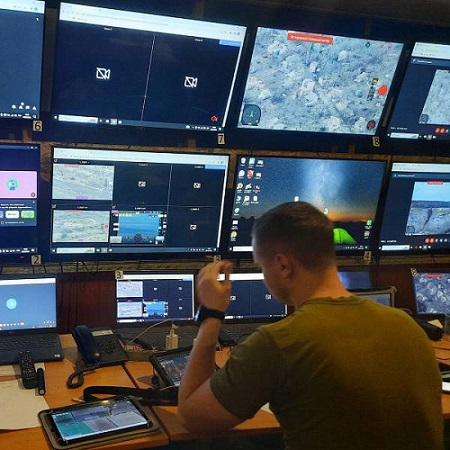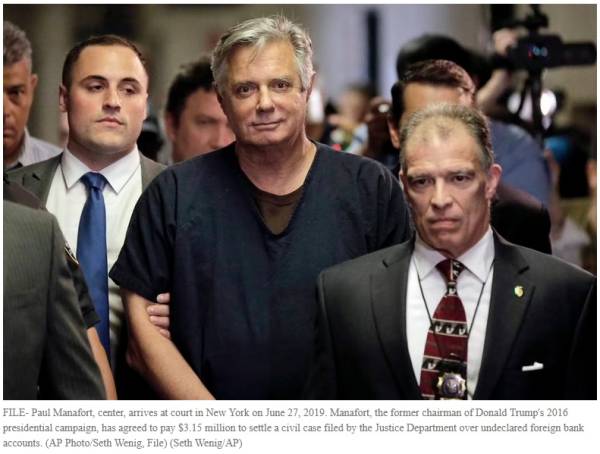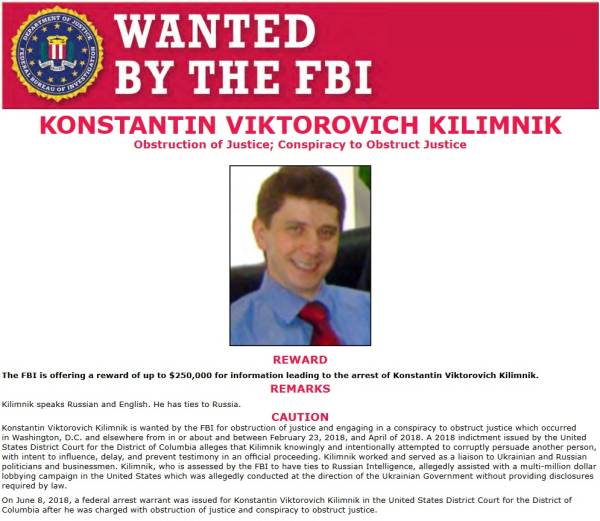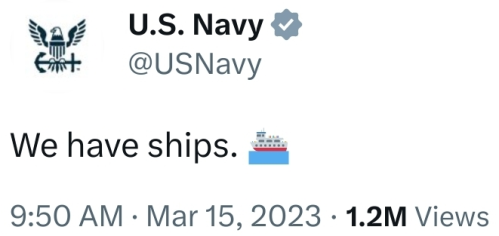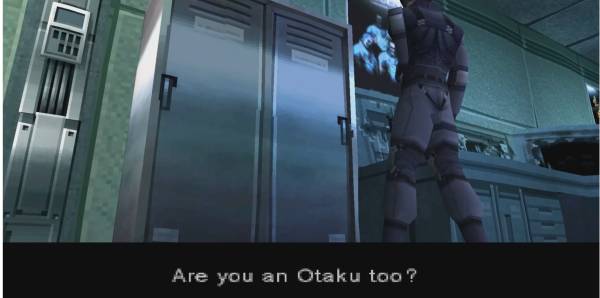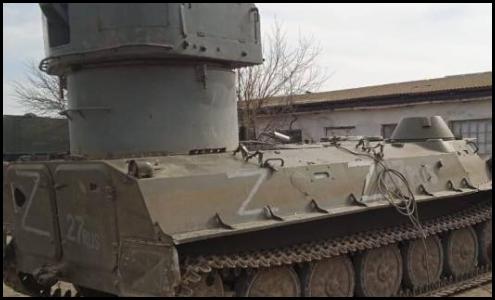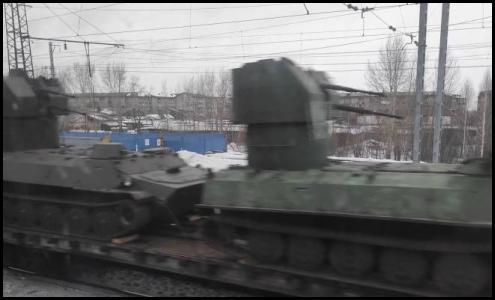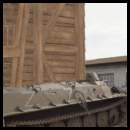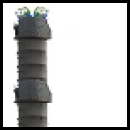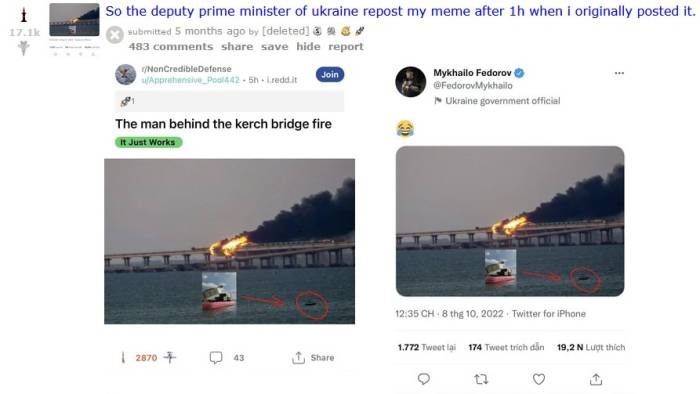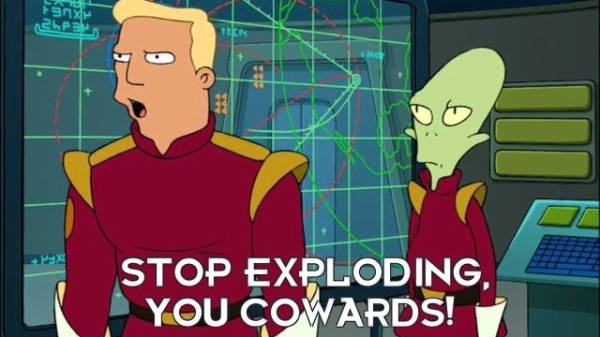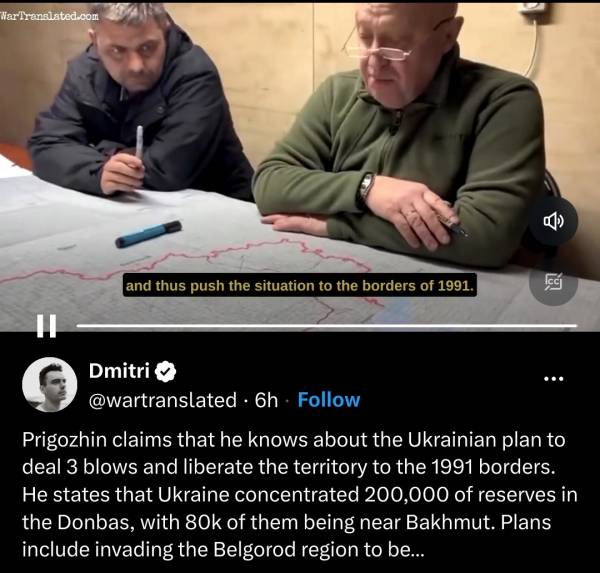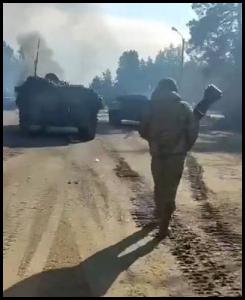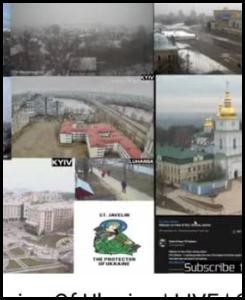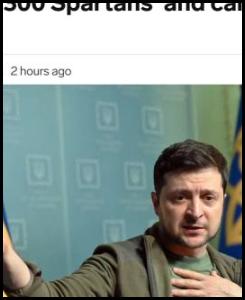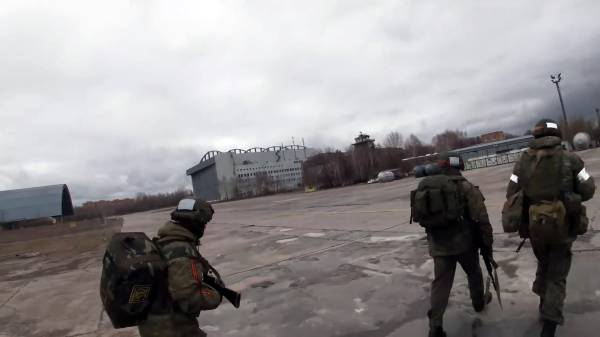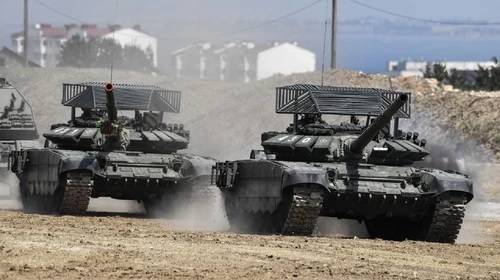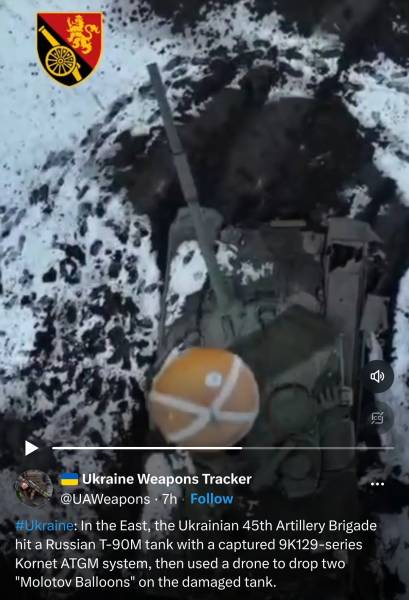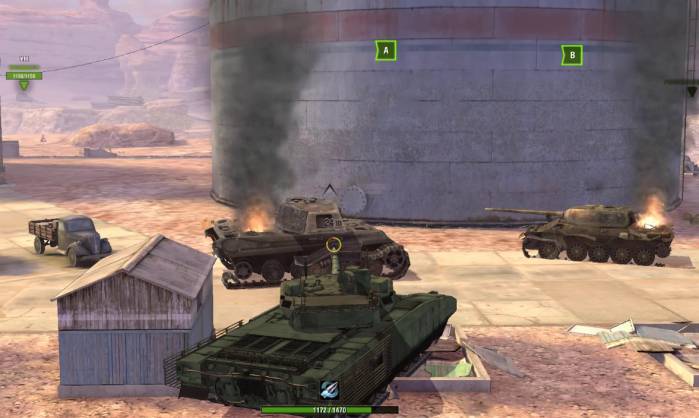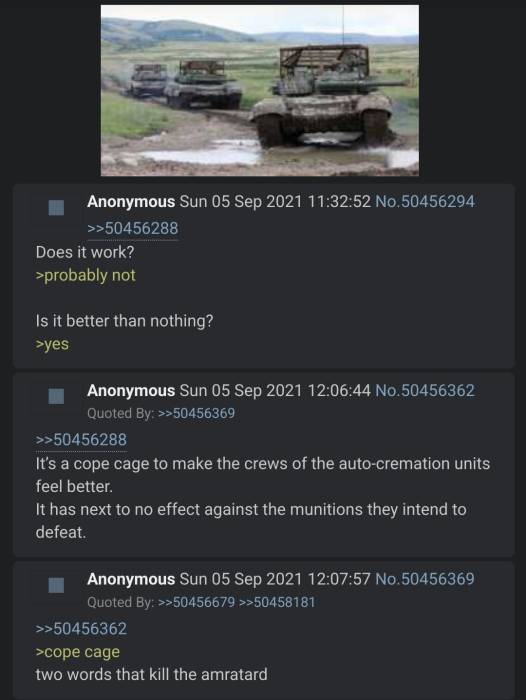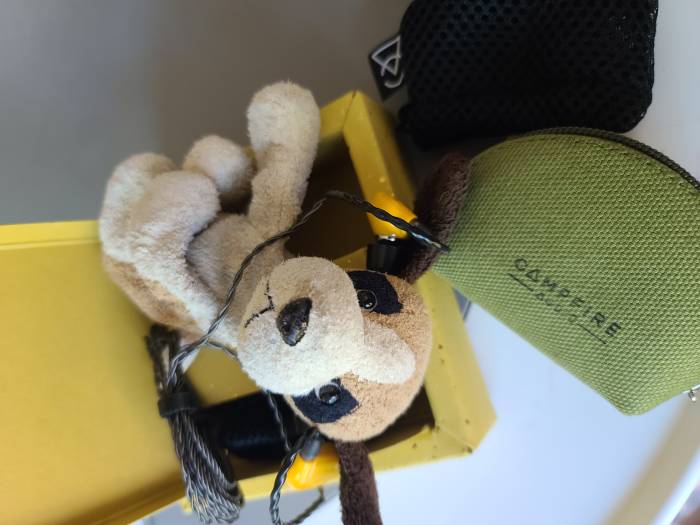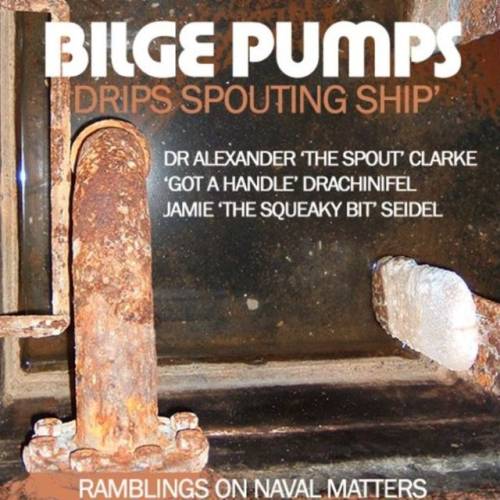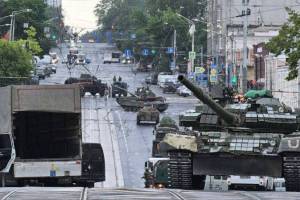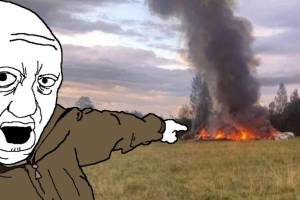I happened upon some
interesting reads/listens this past month. Sprinkled throughout this post are a variety of links:
- Traditional news/information: NYT, WaPo, LA Times, NPR, The Guardian, Wikipedia
- News magazine-type sources: Slate, The Drive, Vice News
- Government: treasury, US Naval Institute, various politicians
- Analysis, opinion, and humor: Royal United Services Institute, various podcasts, /r/CredibleDefense, /r/NonCredibleDefense
But I tried to capture and regurgitate the important parts, here's my book report.
New York Times on Paul Manafort and Russiagate
In November NYT ran an article on Paul Manafort and Russiagate. I totally missed the original publication but it's just as relevant now as it was then. Since 2016 was a long time ago, here's the quick recap on Manafort:
- Paul Manafort had a consulting firm that brought US-style campaigning abroad, including Ukraine in the early 2010s.
- He sold his services to the Russia-aligned Party of Regions, helping to elect Viktor Yanukovych.
- He came back to serve as Trump's campaign chairman.
(None of the above is inherently illegal or scandalous.)
An American strategist in Kyiv
|
|
Source. The FBI is still doing posters like these. |
The NYT article covers Manafort's Ukraine adventure in detail, I'll just hit the CliffsNotes.
Manafort employed another political consultant, Konstantin Kilimnik, who was born in Soviet Ukraine and became a Russian citizen when the wall fell. His CV prior to working with Manafort:
 New York Times
New York Times |
Kilimnik had last worked at the International Republican Institute, a democracy-promotion outfit affiliated with Senator John McCain of Arizona, who was a client of Manafort's longtime partner, Rick Davis. Kilimnik had studied at a Soviet military language academy known for minting future intelligence officers and had served as a Russian Army translator. His colleagues at I.R.I. came to suspect he was passing secrets to Russian intelligence, and he was fired when the institute learned he was working for Yanukovych's backers.
|
Wow, good work, IRI.
Kilimnik then went to work for Manafort's firm in the service of Ukraine's Party of Regions. Their greatest success came when
they reimaged Ukrainian presidential candidate Viktor Yanukovych as pro-democracy and pro-west on the heels of an election that was voided for substantial irregularities. The "extreme makeover" (per US diplomats) had all the earmarks of a western campaign - a new look, culture wars, if-by-whiskey stumping.
Long story short,
Yanukovych won the election and flipped on his campaign promise to make crucial steps toward partnership with the EU. This incited
protests that were met with secret police and body bags. After sparring with parliament, Yanukovych fled the country.
The Ukraine story is an interesting read but for now I'll move on to the 2016 US presidential campaign. The key points from Manafort's Ukraine chapter:
- The Kremlin has been very active in Ukrainian politics, beyond, say, supporting separatists and shooting down airliners. Their not-insignificant financial investment in the country makes a lot more sense now.
- In 2023 discussions about support for Ukraine, you'll often hear about the country being mired in corruption. The NYT article seems to agree with this characterization for the period that Manafort was in Kyiv - before the reforms that followed Euromaidan.
- Working in Ukraine, Paul Manafort filled his rolodex with leaders of Ukraine's pro-Russian Party of Regions.
Conversations that aren't
The article is
centered around an August 2016 meeting between Manafort and Kilimnik at Trump Tower:
 New York Times
New York Times |
Exactly what [Kilimnik] wanted to talk [to Manafort] about was apparently too sensitive even for the tradecraft the men so fastidiously deployed - encrypted apps, the drafts folder of a shared email account and, when necessary, dedicated "bat phones." But he had made coded reference - "caviar" - to an important former client, the deposed Ukrainian president Viktor Yanukovych, who had fled to Russia in 2014 after presiding over the massacre of scores of pro-democracy protesters.
|
In the era of involuntary communications monitoring, bottomless digital storage, and omnipresent video recording, it's easy to forget that
some things happen without evidence. And while you can hardly point to a ghost conversation as evidence of misdeeds, the lack of a recording is by no means exculpatory.
But as they say, "three can keep a secret, if two of them are dead." In this case, Manafort later confirmed that
Ukraine was a strategic objective for the parties Kilimnik represented:
 Slate
Slate |
[Quoting the Mueller Report]
Manafort and Kilimnik discussed a plan to resolve the ongoing political problems in Ukraine by creating an autonomous republic in its more industrialized eastern region of Donbas, and having Yanukovych, the Ukrainian President ousted in 2014, elected to head that republic. That plan, Manafort later acknowledged, constituted a "backdoor" means for Russia to control eastern Ukraine.
|
Russiagate
 New York Times
New York Times |
Putin's assault on Ukraine and his attack on American democracy have until now been treated largely as two distinct story lines... Yet those two narratives came together that summer night at the [Manafort/Kilimnik meeting in the] Grand Havana Room. And the lesson of that meeting is that Putin's American adventure might be best understood as advance payment for a geopolitical grail closer to home: a vassal Ukrainian state.
|
NYT suggests that where there's smoke there's fire; that
assurances about Trump's policy toward Russia, Ukraine, and NATO would be repayment for the DNC hacking and social media campaigns that followed. The Kremlin's interest in Ukraine wasn't obvious (to the causal viewer) in 2016 or even 2021. Now that Russia has mortgaged its men, economy, and military prestige on the dimming hope of taking Kyiv, cyberattacks and disinformation campaigns seem like a bargain.
It's worth noting that there was no lack of contemporary speculation about this:
| | | | |
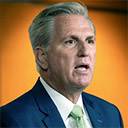
Kevin McCarthy
|
There's two people I think Putin pays: Rohrabacher and Trump
|
|
|
|
No leaks... This is how we know we're a real family here.
|
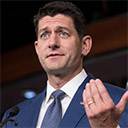
Paul Ryan
|
| | | | |
From WaPo.
Shadow campaign manager
 Treasury Department
Treasury Department |
During the 2016 U.S. presidential election campaign, Kilimnik provided the Russian Intelligence Services with sensitive information on polling and campaign strategy. Additionally, Kilimnik sought to promote the narrative that Ukraine, not Russia, had interfered in the 2016 U.S. presidential election.
|
Per the FBI and Treasury, Kilimnik helped close the loop on coordinating campaign strategy, polling, and disinformation campaigns.
Manafort didn't last long in his official capacity. In rooting out corruption, Ukraine found records of off-books payments to him from the Party of Regions. The Trump campaign replaced him, though he stayed on as an adviser.
The bigger picture
 New York Times
New York Times |
The examination also brings into sharper relief the tricks of Putin's trade as he pressed his revanchist mission to cement his power by restoring the Russian empire and weakening democracy globally. He pursued that goal through the cunning co-optation of oligarchs and power brokers in the countries in his sights, while applying ever-evolving disinformation techniques to play to the fears and hatreds of their people.
|
"Created the post-fact timeline." Kind of impressed ngl.
OSINT, Twitter, and /r/CredibleDefense
Speaking of Russia, Ukraine, and the post-fact timeline, the Naval Institute published
a short writeup on
open source intelligence in the context of the Ukraine war.
 US Naval Institute
US Naval Institute |
Before the invasion of Ukraine, researchers paying attention to tweets from Russian accounts showing Russian trains loaded with tanks and armored vehicles. By geolocating these photos and following the train tracks, OSINT researchers quickly identified the size and locations of a massive buildup occurring not just on the Russia-Ukraine border, but along parts of the Belarusian and Moldovan borders as well.
...
Researchers started identifying individual vehicles and tracking their status. Twitter users @GirkinGirkin and @no_itsmyturn identified more than 400 vehicles in the first ten days of the invasion alone. Others began documenting the invasion as a whole.
|
This reminds me of
the Forte11 saga, when insomniacs were
watching Flight Radar for an unbiased ground truth about what was going on at the Ukraine border. USNI sees social media feeds as sensors that purposefully or unwittingly provide realtime information on military movements. Twitterers such as
Oryx have similarly used this information to, for example, tabulate Russia's armor and aircraft losses.
Of the mainstream social media platforms,
Twitter is the best for this realtime sensor data. But it's trash for discussion and analysis, e.g. questions like "can we trust where/when this OSINT video was taken?", "is Yevgeny Prigozhin really at Bakhmut city hall?", and "is an MRAP an APC?". For that you need an enthusiast community where correct information is validated and wrong answers are brutally criticized.
/r/CredibleDefense is one such place, though since it's an open (but moderated) forum there's no lack of non-credibility.
USNI continues with a disussion of the difficulties of shielding blue forces against OSINT:
 US Naval Institute
US Naval Institute |
By average monthly users, the top four social media sites are all owned by companies in the United States. This could lead to a belief that the United States can gain control over the communication pillar at a moment's notice. However, if the United States attempted to suppress OSINT activities on these services, the community would be able to shift to others with relative ease.
...
Hostile activities of the OSINT community threaten two aspects of warfare: the ability to hide actual force capacity and the ability to employ surprise.
|
Ships, 'the community', and non-credibility
The USNI paper describes the OSINT community as conscientious, so it should come as no surprise that
/r/CredibleDefense has a crayon-eating sibling that advocates for the good guys (and also fetishizes warplanes). So when
pictures of a Russian utility vehicle outfitted with a naval anti-aircraft turret popped up on the interwebs, as /r/CredibleDefense stood aghast the NCD meme army got to work:
War memes? Really? Shouldn't those relegated to the dark corners of the internet?
Probably yes. That said,
this conflict feels different from Iraq, Afghanistan, and the first Gulf War. In those, our heads of state gave the go order and we rode it out for a year or twenty. There was plenty of vocal dissent and calls to wind things down but nobody was going to pull the rug on a moment's notice.
Since western nations have only provided money and weapons to Ukraine, the rug could very much be pulled without the consequences we saw in Iraq and Afghanistan. And the support that has been given only came gradually. Germany caught flak in the early days of the war for initially offering a few crates of helmets. Now they're sending MBTs and risked a winter of rationed natural gas.
The West is standing behind Ukraine, but perhaps only because of popular support.
Will public support outlast the hostilities? The Russian winter offensive went almost nowhere. Ukraine has been training and equipping for a spring counteroffensive, but everything I've read has been like, "maybe they'll push back the Russian lines, maybe they'll hit a wall of artillery and suicide drones".
Can Tiktokers and memers steer public sentiment toward continued support for Ukraine's existential struggle? I don't think
NAFO memes are especially persuasive, but then I also didn't think circa 2016 Facebook ads and The_Donald posts were persuasive. I'll defer to the Ukrainian government:
Entrenching
For Russia,
the winter stalemate has brought a pretty significant shift in rhetoric. The war started as (paraphrasing) "a
twenty-minute denazification, in and out". It was a "special military operation" to liberate ethnic Russians in Donbas. Official statements seemed to minimize the significance of the conflict, like with the peacekeeping force in Georgia and the enthusiastic tourists in Crimea.
 The Guardian
The Guardian |
Speaking at length to workers at an aviation factory in the Buryatia region recently, Putin once again cast the war as an existential battle for Russia's survival.
"For us, this is not a geopolitical task, but a task of the survival of Russian statehood, creating conditions for the future development of the country and our children," the president said.
|
The Ukraine war is now an existential threat. Somehow Ukraine pulled a reverse uno and now Russia is fighting for its life. Or, you know, the only way to convince people to support a voluntary war is to claim existential peril. Smh Russia, that kind of rhetoric simply does not fly in a democracy.
 George W. Bush
George W. Bush |
If Saddam Hussein attempts to cling to power, he will remain a deadly foe until the end. In desperation, he and terrorists groups might try to conduct terrorist operations against the American people and our friends. These attacks are not inevitable. They are, however, possible. And this very fact underscores the reason we cannot live under the threat of blackmail. The terrorist threat to America and the world will be diminished the moment that Saddam Hussein is disarmed.
|
Oh. Awkward. Anyway, returning to Russia, Alexander Dugin seems to have likewise embraced trench warfare in lieu of
lightning war:
 The Guardian
The Guardian |
"Not everyone in this country yet understands what we're going to have to pay to win this war," said Alexander Dugin, a radical Russian philosopher and prominent supporter of the war. "People in our country have to pay for their love for Russia with their lives. It's serious and we weren't ready for this."
"I don't think people in this country fully understand what is happening after a year," Dugin added.
"Of course there's full support from the president but it hasn't fully come into the hearts and souls of all our people ... some people have woken up, some people have not. Despite the year of war, it is going very slowly."
|
|
|
|
Wagner's Yevgeny Prigozhin outlines what he expects from Ukraine's spring offensive. For some reason. |
It'd be interesting to be a fly on the wall for
the Yevgeny Prigozhin / Sergei Shoigu saga. The PMC boss and Russian defense minister have sparred openly about offensive failures and supply shortages. It's difficult to say what's happening behind closed doors, but the visible personnel and strategy shifts have been great fodder for speculation.
No plan survives first contact
The early days of the war was a free-for-all of information and misinformation. Social media exploded with photos and videos of the conflict, professional journalists relayed the things they could verify, and global leaders scrambled to take an official position.
There were a couple of events that seemed incredibly significant and not beholden to the fog of social media and politics: that lengthy tank column from Belarus to Kyiv and the battle of Hostomel (Antonov) Airport.
A year later,
intelligence services and global security think tanks have had time to process and publish reports on the events of the early war. They're interesting reads and helpful for clearing up months-old unconfirmed rumors. Here's one:
 The Guardian
The Guardian |
Russia's leadership initially expected the conflict would last just a matter of weeks before they declared victory, according to plans captured by western intelligence at the beginning of the war.
|
3000 assets of Putin
 Royal United Services Institute
Royal United Services Institute |
One of the foremost causes of inaccuracy in pre-war military assessments of the likely trajectory of the fighting - both in NATO countries and in the Ukrainian military - stems from the assumption that the Russian forces would conduct a deliberate military offensive. For example, it was assumed that rail and logistics infrastructure would be targeted. Instead, because the aim was to fix and isolate Ukrainian units, there was very little attempt to destroy them in the first three days. The whole logic of the employment of forces was premised on the success of Russia's unconventional operations and yet, as already discussed, the preconditions for that success in terms of the political destabilisation of Ukraine had not yet been achieved. There remains an unanswered question as to why the Russian leadership decided to begin the invasion without establishing the required preconditions. This may be understood as a strategic error of judgement by Putin personally.
|
In short,
Russia thought their intelligence assets would sufficiently paralyze the Ukrainian response for the strike on Kyiv to cleanly decapitate the country's leadership. Those same assets would then welcome a power transition rather than support a decentralized resistance. Remember that Ukrainian negotiator (
Denys Kireyev) who was shot by security forces during peace negotiations in Belarus?
Returning briefly to Ukraine's exiled president Viktor Yanukovych:
 Wikipedia
Wikipedia |
By January 2013, more than half of the ministers appointed by Yanukovych were either born in the Donbas region or made some crucial part of their careers there, and Yanukovych has been accused of "regional cronyism" for his staffing of police, judiciary, and tax services "all over Ukraine" with "Donbas people".
|
In light of RUSI's reporting that Russia aimed to paralyze Ukraine by sabotaging its ability to organize,
the impact of Yanukovych's cronyism (be it out of self-interest or the Kremlin's behest) could have been significant had he remained in power.
Hostomel Airport
I, like perhaps other casual observers,
initially thought any Russian incursions outside of Donbas were merely a feint. "Surely Kyiv is heavily fortified and the Kremlin's obvious objective is the breakaway regions adjacent to their 2014 annexation."
 Wikipedia
Wikipedia |
In the time leading up to the 2022 Russian invasion of Ukraine, the United States Central Intelligence Agency (CIA) obtained detailed information about Russian attack plans. CIA director William J. Burns travelled to Ukraine in January 2022, and informed the Ukrainian leadership that Russia intended to capture Antonov Airport for an airbridge, which would allow Russian forces to quickly move into Kyiv to "decapitate the government"
|
The invasion plans seems to have relied heavily on the ability to fly waves of infantry into an airport near Kyiv. US intelligence took this information (and the defense of Ukraine) seriously enough to send the top dog to meet with Zelensky.
 Wikipedia
Wikipedia |
Some Ukrainian air defenses at [Hostomel] airport were precisely hit and destroyed during this initial attack; Ukrainian officials later concluded that an airport employee had been hired by Russian intelligence to reveal these positions.
|
Burns wasn't the only one hard at work.
 Wikipedia
Wikipedia |
Despite overcoming the initial Ukrainian resistance, the paratroops continued to be engaged by local armed civilians and the 3rd Special Purpose Regiment. The Ukrainians also began to bombard the airport with heavy artillery. Ukrainian Gen. Valery Zaluzhny recognized the danger of the Russian bridgehead at Hostomel, and ordered the 72nd Mechanized Brigade under Col. Oleksandr Vdovychenko to organize a counter-attack.
|
Bureaucratic state
 Royal United Services Institute
Royal United Services Institute |
At a fundamental level the Russian special services lack self-awareness, or at least the honesty to report accurately about their own efforts. In the case of Ukraine, a plan was attempted that was critically dependent on unconventional methods when the preconditions for success had not yet been achieved. This reveals wider cultural problems in the Russian services. That they are directed to bring about an outcome without independently assessing the viability of the plan creates a reporting culture where officers are encouraged to have a significant optimism bias. Furthermore, there appears to be a systemic problem of overreporting one's successes and concealing weaknesses to superiors. This is evidenced by the overly optimistic assessment of the proportion of Russia's agent network that would be proactive in supporting Russia in the context of a full-scale invasion.
|
In RUSI's analysis,
the incentive calculus for Russian assets in Ukraine flipped the moment the fighting started. On top of logistics issues and their failure to secure a Kyiv airstrip, the Kremlin's inside sources and administrative influence suddenly went dark. Even if the invaders landed a killing blow to the government in Kyiv, the rest of the country would resist.
 GenevaExcuse GenevaExcuse |
VDV drop into Hostomel and make the Airport our forward operations base, Nato won't even know what hit them. Stupid Ukrainians don't even defend Pripyat. Europeans will freeze to death or comply. Our great leader and master strategist will show western degenerates, end the westoid hegemony and make the world multipolar. India also is going to buy so many T-90
|
And who has a better story than T-14 the vaportank?
|
|
Source. It's a Yakima, the cadillac of ski racks. |
|
|

|
/u/vopi181
Little did this user know their shitpost would make into the WaPo print
|
Another meme that's made the rounds is the so-called 'cope cage' -
ad hoc armor modifications meant to protect against antitank weapons that impact from above (e.g. St. Javelin). Deafeningly absent from this conflict is Russia's non-Home Depot solution to modern antitank weapons: that solution is called the T-14 Armata.
 The Drive
The Drive |
The new-generation T-14 Armata tank program, which features an unmanned turret, improved passive armor, and active protection systems specifically intended to defeat ATGMs and infantry anti-tank rockets, has been delayed and planned numbers slashed.
|
The T-14 program started in the early 2010s (Russia designates their tanks by the year they were developed) so it leads one to wonder where they are almost a decade later. For comparison,
the T-90 entered service in 1992.
|
|
Source. A Ukrainian drone drops an incendiary balloon on a Russian tank that had been disabled by artillery fire. |
2014 was a busy year for the Ukraine-Russia storyline. As mentioned above, Ukraine booted its Moscow-aligned president after bloody protests. Russia occupied Crimea, securing a warm water port and the desire to have a landbridge thereto. MH-17 was shot down by a Russian SAM system in breakaway Ukrainian territories.
The wheels were in motion for the massive conflict that we are seeing almost a decade later.
 Wikipedia
Wikipedia |
The T-14 first publicly appeared in March 2015, when several tanks with covered turrets were seen loaded on train carriage in Alabino. It was subsequently revealed on 9 May during the 2015 Moscow Victory Day Parade. During the 2015 rehearsals, one of the tanks suddenly stopped moving, and after attempts to tow it failed, it moved away under its own power after about 15 minutes.
At least seven T-14 Armata tanks appeared in the 2015 and 2016 Moscow Victory Day parade, five in 2017 and 2018. Four were anticipated in promotional materials in advance of the 2019 parade.
|
Whew, five straight years of dog and pony with no real world action. Those are Cybertruck numbers.
One of my guilty pleasures is watching the
backtracking and spin that occurs when projects fall behind. Sometimes it's my own project, sometimes I'm watching a CEO explain the absence of their miraculous blood test machine or VR universe. This one was pretty lolworthy:
 Wikipedia
Wikipedia |
In July 2018, Deputy Prime Minister for Defence and Space Industry Yury Borisov said there is currently no need to mass-produce the Armata when its older predecessors, namely the latest variants of the T-72, remain "effective against American, German and French counterparts", saying, "Why flood our military with Armatas, the T-72s are in great demand on the market(s)."
|
"Did you blow our retirement on 0DTEs?"
- "No. [lie]" <-- Don't do this.
- "Yes." <-- Don't do this.
- "Why would I blow our retirement money on 0DTEs?" <-- This one.
Weasel words 101:
avoid copping to a bad thing by responding with a rhetorical question. And while maybe there's something gained/lost in translation, describing the procurment of a next gen tank as 'flooding' the military with it seems... laden with connotation.
|
|
|
St. Javelin, a meme from the internet. |
Whether or not Borisov knew about Moscow's next military adventure, someone listening to him did. And so it's worth noting that
effectiveness against NATO tanks is pretty far down the list of tanker concerns in the current conflict. Ukraine
primarily fielded T-72s and T-80s and, well, four months before Borisov's statement, the DoD announced a
delivery of Javelin systems to Ukraine.
Two erratas:
- The T-72's effectiveness against western MBTs may soon become relevant as Ukraine brings its bought/donated Leopard, Challenger, and Abrams tanks into the spring (or summer) offensive. So possible redemption arc for Borisov.
- A year after the aforementioned Javelin delivery, the Perfect Phone Call imperiled a congressionally-approved military aid package to Ukraine. In that conversation, President Zelensky expressed the desire to purchase more Javelins.
|
|
Source. The T-14 undergoing World of Tanks trials. |
 Wikipedia
Wikipedia |
The state trials of the [T-14] started in early 2020. This became known in April 2020, when Minister of Industry and Trade Denis Manturov stated the T-14 has already been tested in combat conditions on the territory of the Syrian Arab Republic. Subsequently in July 2020, testing of an unmanned version of the T-14 called "Tachanka-B" was announced.
|
The state trials perhaps didn't go so well since
the following year we saw the first Yakimaed MBTs:
 Vice
Vice |
The first cope cages were spotted on Russian T-80 tanks rolling into Crimea in November 2021... A month [later], Ukraine posted a training video on its Facebook page showing Javelin-wielding troops destroying stationary tanks coated in cope cages.
|
|
|
|
Based on post timestamps, 4chan beat /u/Firm_Challenge1143 to the punch, but that's how [the internet](../../2017/12/internet_centipede.png) is.
|
With the palapaed Soviet-era tanks roaming Crimea,
the T-14's schedule kept sliding right. "Evaluation to finish next year, production to begin the following year" was the yearly announcement. The current promise is delivery "after 2023". If I learned anything from the
Lordstown saga, there'll be an announcement later this year about how everything was going according to plan until they encountered supply chain issues. I guess in this case that'd actually be a pretty legitimate excuse.
I don't know enough about the subject matter to provide any credible insight, I just found it interesting to view the Ukraine-Russia saga through the lens of a
DIB project. It could very well be that the Russian MoD wrote the T-14 off as a parade prop years ago. On the other hand, RUSI asserts that the Russian intelligence apparatus has a bad relationship with the truth. If the Russian DIB operates in a similar way,
perhaps warplanners expected the 40-mile armor column to Kyiv to be Javelin-evading futuretanks.
Break but don't bend
I'll wind this down with a funny
interview I heard on NPR the other day. Having ragequit the Trump administration because it wouldn't invade Iran, noted war hawk
John Bolton wrote a book about how the Iraq war was a textbook bit of foreign policy. His book tour included a chat with NPR's Steve Inskeep that turned sour after some pretty unremarkable questions. Here's most of the aired interview (which wasn't the full conversation).
| | | | |

Steve Inskeep
|
At the end of this week of remembering the war in Iraq, we hear John Bolton, who defends the decision to start it. The United States invaded 20 years ago. U.S. troops never found the weapons of mass destruction used to justify the war and instead triggered an insurgency. This week, we've heard American veterans, Iraqi civilians and a man the U.S. once imprisoned. We've also heard a former top U.S. military officer who says the war was a mistake. In 2003, John Bolton was a senior diplomat in President George W. Bush's administration. He has written in the National Review that the decision to invade was right, even if later decisions were wrong.
|
|
|
|
What's the distinction in your mind?
|
|
|
|
Well, I think it's a mistake to treat a 20-plus year period as a block of granite. You accept one piece of it, you accept all of it. I don't think that's right. So I think you have to look at a series of decisions - some of which were right in my view, some of which were wrong - and judge each of them on their own. And you have to do it on the basis of how decision makers face these questions when they're confronted with them. Hindsight, as the saying goes, is always 20/20.
|
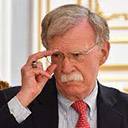
John Bolton
|
|
Wasn't it foreseeable that taking over a country of 27 million people are so probably would be very, very hard, very expensive, a very long process?
|
|
|
No, I don't think it was inevitable that that was going to happen in any event.
|
| | | | |
"I'm not going to answer whether it was forseeable, instead I'm going to answer a made-up question." Inskeep didn't let him move the goalpost that easily:
| | | | |

Steve Inskeep
|
Maybe not inevitable, but wasn't it foreseeable that that would be a very likely outcome?
|
|
|
|
It was a potential outcome. That's right. And I think there were decisions made after the invasion that were mistaken, but some things occurred that nobody foresaw, particularly the utter collapse of the Iraqi government.
|

John Bolton
|
| | | | |
90% of small businesses fail within the first five years. Governments are a safe bet though!
| | | | |

Steve Inskeep
|
Bolton says it's important to recall the times after the 9/11 attacks when the United States didn't know what threats might lurk. At that time, some officials did fear the U.S. was setting unrealistic goals for reordering the world. We played one such voice for John Bolton - Republican Congressman Jim Leach, who spoke with me on NPR back in January of 2003.
|
|
|
|
(Archive clip) I've never known a time period where something called hubris is less appropriate. This is a time period to think and act with the greatest degree of caution.
|

Jim Leach
|
|
Ambassador, with the greatest respect, was there perhaps some hubris in the idea that the United States could get in quickly to that country and get out again?
|
|
|
Well, I don't know whether there was or not since we did get in quickly. The period of major combat operations lasted from March the 20 to May the 1.
|

John Bolton
|
|
Sure.
|
|
|
And the military's performance was superb. And I don't know...
|
|
But maybe the hubris was on the other side.
|
|
|
Let me - can I just finish, please?
|

Steve Inskeep
|
Please. Go ahead.
|
|
|
I don't know anybody who criticizes that. Now, in terms of, let's say, hubris versus prudence, the United States had been attacked on 9/11 to devastating effect. Terrorist groups were still around in the Middle East and worldwide. What's the most prudent thing to do? My view is, was then and is today, the most prudent thing to do, from the point of view of innocent civilians of the United States, is remove the threat.
|
| | | | |
"WHY DON'T YOU LET ME FINISH? Okay good, now
let me dodge half of the question."
| | | | |

Steve Inskeep
|
You write that no one lied about WMD, weapons of mass destruction. When I read that, I immediately recalled the 16 famous words from a speech by President Bush.
|
|
|
|
(Archive clip) The British government has learned that Saddam Hussein recently sought significant quantities of uranium from Africa.
|
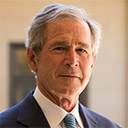
George W Bush
|
|
Every part of that statement turned out to be false. And it seems the writers of that speech knew that it was doubtful at best because they didn't source it to U.S. intelligence. They sourced it from something they'd supposedly heard from the British. Wasn't that awfully close to a lie?
|
|
|
Well, it depends on how you define a lie, because if you believe that's a lie, then a lot of what I hear on NPR on any given day is a lie. To me, a lie is a statement that's untrue, that's uttered deliberately knowing it's false. The administration didn't lie.
|

John Bolton
|
| | | | |
Yeah, John, the point is that there's far more compelling evidence that it was "uttered deliberately knowing it's false" than the contrary. But
a really strong counterpoint is "no u".
| | | | |

John Bolton
|
To me, a lie is a statement that's untrue, that's uttered deliberately knowing it's false. The administration didn't lie.
|
|
|
|
I want to mention if you think you hear a lie on NPR, let me know - or even a false statement. We try to correct them when they come up.
|

Steve Inskeep
|
|
I don't have the time to do that.
|
|
| | | | |
"I know about so many lies. I'd tell you, but you wouldn't know them because
they go to a different school... in Canada."
| | | | |

John Bolton
|
Do you believe that [Bush] did not have Security Council authorization?
|
|
|
|
You're telling me that he did. What was the legal basis...
|

Steve Inskeep
|
|
Why don't you just answer the question? I have to answer your questions. Why don't you - it's a simple question. Yes or no - do you think he had authority?
|
|
| | | | |
The audio is as petulant as the text indicates. NPR aired excerpts of the interview so I don't know how long the whole thing was, but Bolton seems anything but stalwart in defense of his book.
Further listening
I'm not much of a podcast guy, but since /r/CredibleDefense had a
recommended listening list, I screenshotted it for future reference.
Some posts from this site with similar content.
(and some select mainstream web). I haven't personally looked at them or checked them for quality, decency, or sanity. None of these links are promoted, sponsored, or affiliated with this site. For more information, see
.

